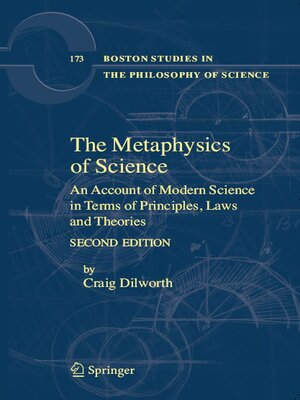The Metaphysics of Science
ebook ∣ An Account of Modern Science in Terms of Principles, Laws and Theories · Boston Studies in the Philosophy and History of Science
By Craig Dilworth

Sign up to save your library
With an OverDrive account, you can save your favorite libraries for at-a-glance information about availability. Find out more about OverDrive accounts.
Find this title in Libby, the library reading app by OverDrive.



Search for a digital library with this title
Title found at these libraries:
| Library Name | Distance |
|---|---|
| Loading... |
The roots of this work lie in my earlier book, Scientific Progress, which first appeared in 1981. One of its topics, the distinction - tween scientific laws and theories, is there treated with reference to the same distinction as drawn by N. R. Campbell in his Physics: The Elements. Shortly after completing Scientific Progress, I read Rom Harré's The Principles of Scientific Thinking, in which the concept of theory is even more clearly delineated than in Campbell, being directly connected to the notion of a model – as it was in my book. In subsequent considerations regarding science, Harré's work thus - came my main source of inspiration with regard to theories, while Campbell's remained my main source with respect to empirical laws. Around the same time I also read William Whewell's Philosophy of the Inductive Sciences. In this work, Whewell depicts principles as playing a central role in the formation of science, and conceives of them in much the same way as Kant conceives of fundamental synthetic a priori judgements. The idea that science should have principles as a basic element immediately made sense to me, and from that time I have thought of science in terms of laws, theories and principles.







